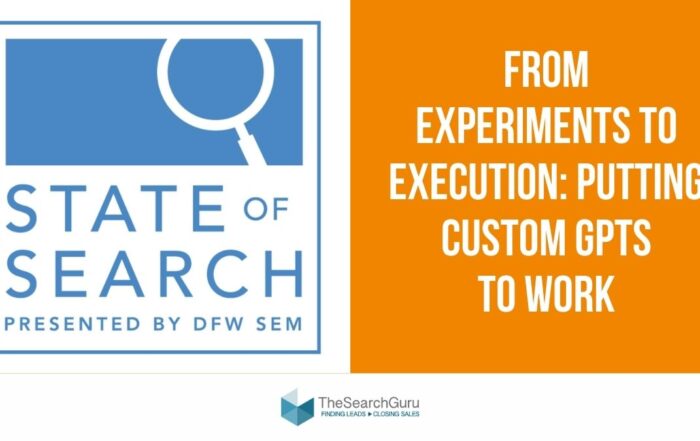Search Engine Statistics and Coverage
Knowing which search engines are getting the largest percentage of search traffic plays a big role in deciding the focus of optimization efforts. Google search statistics, for example, show us that Google is still the king of search traffic, accounting for a whopping 87.63% of all search traffic in September 2015. Bing and Yahoo! follow further behind with 3.88% and 3.54% respectively, while Ask is at 0.39%.
These search engine statistics and coverage show that you should be focusing your optimization effortson Google first and foremost. Google search statistics cannot be ignored.
It is worth noting, however, that Bing traffic has grown 43.2 percent, from 60.7 million users in June 2009 to 86.9 million users in December 2010, according to comScore. Searches have grown from 1 billion to 1.7 billion over the same period.
Worldwide Internet Population
In December 2008, the worldwide Internet audience of people ages 15 and older surpassed one billion visitors for the first time. In January 2007, there were 106,875,138 sites on the Internet. As of January 2011, there were 273,301,445 sites. This represents a 156% increase in 4 years.
How is your site going to stand out against all this growing competition?
Global trends
Worldwide internet traffic grew 62% in 2010. The regions experiencing the fastest year on year growth were Eastern Europe and India/South Asia, where average traffic growth exceeded 100%, and the Middle East, where traffic rose just under 100%. (Telegeography, October 2010)
Global advertising spend in measured media is expected to exceed $500 billion for the first time ever in 2011. Online ad spend is expected to hit $82 billion. (GroupM, December 2010)
How often are people searching?
How are these for some interesting search engine optimization stats? There were 16.6 billion searches performed in the U.S. alone in October of 2010. Another relevant search engine online marketing statistic is this: over 77% of North America’s population is using the Internet.
These search engine optimization stats show that there is a great deal of opportunity for your company to find new customers from the search engines. The real question, then, is “Are any of these searchers finding YOU?”
Search engines are now the primary local information source
A new study has determined that for the first time, search engines have trumped printed yellow pages for searchers looking for local information. More customers than ever are using the web to find businesses; and, importantly, the study found that online searchers are more likely to convert to sales.
A 2010 Local Consumer Review Study found that:
- 70% of people have used the internet to find a local business in the last 12 months
- Younger consumers use the internet more frequently to find local businesses than older consumers
- 67% of local consumers have consulted online customer reviews of local businesses
- Younger consumers are more influenced by positive online reviews than older consumers
- Female consumers are more likely to select a local business that has positive customer reviews
- 69% of local consumers trust online reviews as much as personal recommendations
Is your business cashing in on these online sales?
Mobile trends
More children can use a smartphone (19%) than can tie their own shoelaces (9%). (AVG as cited by TechEye, January 2011)
It is estimated that the number of mobile broadband subscribers will hit 1 billion by the end of 2011 (up from 500 million in 2010). (Ericsson as cited by ReadWriteWeb, January 2011)
1 in 3 customers surveyed said they would like to have ‘click to call’ services integrated into operators websites, to make contact simpler and easier when issues arise. (ATG as cited by Digitalstrategyconsulting.com, November 2010)
A search engine online marketing statistic for ecommerce
Searchers are definitely spending money at ecommerce sites. Did you know that online sales have grown by almost 6% compared to the same time last year, even in this challenging economy? This means that your website could be making 6% more this quarter than it did the same quarter last year. Is this happening at your site?
Advertising in a weak economy
According to a new Ad-ology Research study, “Advertising’s Impact in a Soft Economy,” more than 48% of U.S. adults believe that a lack of advertising by a retail store, bank or auto dealership during a recession indicates the business must be struggling. Conversely, a vast majority perceives businesses that continue to advertise as being competitive or committed to doing business.
The study also found that store web sites ranked second only to search engines as the way consumers research products and shop online. Are you taking advantage of this online marketing opportunity?
Which SEO strategy works better for you?
46% of e-commerce site owners felt that organic search converted better, while 37% felt that pay per click advertising converted better.
 On the Internet organic search drives 75%+ of all search traffic and pay per click receives less than 25% of all search traffic; yet pay per click earns 80%+ of search engine marketing campaign budgets. According to a joint eye tracking study conducted by search marketing firms Enquiro and Did-it and eye tracking firm Eyetools, searchers actually spend the bulk of their time in the organic listings.
On the Internet organic search drives 75%+ of all search traffic and pay per click receives less than 25% of all search traffic; yet pay per click earns 80%+ of search engine marketing campaign budgets. According to a joint eye tracking study conducted by search marketing firms Enquiro and Did-it and eye tracking firm Eyetools, searchers actually spend the bulk of their time in the organic listings.
Now that you’ve read that particular search engine online marketing statistic, don’t you think it’s time you found out which would convert better for you?
Google search statistics for AdWords
30% of online retailers polled said that more than 50% of their traffic came from pay per click ads and 76% felt that Google’s AdWords was the best performing pay per click advertising engine. 45% of people who advertise using pay per click have more than 500 words in the keyword lists. Can you say the same? Are you happy with your pay per click management?
The Search Guru can help your company become a successful search engine online marketing statistic.
If you have any questions about the implementation or importance of this, please email us or call us at 440-306-2418.
Recent Posts
From Experiments to Execution: Putting Custom GPTs to Work in SEO & Content Production
A preview of Leslie Carruthers' talk at State of Search 2025, with a 1-page fix to turn your AI trials into real results. Most B2B marketing teams are stuck in the AI experimentation
The B2B Marketer’s Blueprint for an AI + Human Hybrid Team
TSG Founder Leslie Carruthers to share a proven framework for driving real ROI with AI at LavaCon 2025. We keep hearing the same thing from B2B marketing leaders: “We have AI tools, but
4 Free AI Tools B2B Marketers Are Using Right Now
TL;DR: We’re gifting you 4 plug-and-play AI tools our clients are using right now to save time and scale marketing. You can dive in, or reach out and we’ll walk through what’s best for




